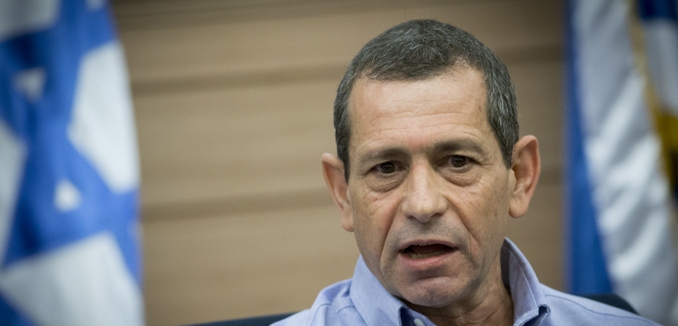The head of Israel’s General Security Service briefed the Israeli Cabinet on Sunday about the scale of the current terrorist threat.
Nadav Argaman, head of the Shin Bet, told Government ministers that Israel has prevented 200 terrorist attacks from more than 70 local terrorist cells since the beginning of 2017. Argaman said the security reality in the West Bank was “fragile” and “characterized by heightened sensitivity to incidents of a religious hue … with emphasis on the methods of stabbing, ramming and shooting.”
Argaman reported that Hamas is making efforts to carry out terrorist attacks in the West Bank to undermine the relative stability, but is having difficulty doing so due to the steps taken by Israeli security forces. Noting the humanitarian crisis in Gaza, Argaman referred to the low level of violence from Gaza as a “deceptive calm,” explaining that Hamas is in a state of readiness for a confrontation with Israel, aided by its links with Iran, who is helping Hamas also gain a foothold in Lebanon.
Hamas-Iranian ties have improved over the last few months following the diplomatic crisis in the Gulf between Saudi-Arabia and Qatar, Hamas’s largest donor. On August 4th, a senior Hamas delegation arrived in Tehran for the swearing-in ceremony of Iranian President Hassan Rouhani, whilst in late August Gaza-based leader Yahya Sinwar told journalists from al-Rai, the Hamas-run news agency, that “relations with Iran are excellent and Iran is the largest supporter of the Izz el-Deen al-Qassam Brigades [Hamas’ armed wing] with money and arms.”
In related news, Ismail Haniyeh, the head of Hamas’s political wing, left the Gaza Strip on Saturday for meetings in Cairo with Egyptian intelligence officials. The Hamas delegation includes Yahya Sinwar and his deputy, Khalil al-Hayya, as well as representatives from Hamas’s overseas leadership, including Moussa Abu Marzouk, who is apparently coming to Cairo from Qatar.
A Hamas statement on Saturday said the delegation would discuss “mechanisms to ease the siege on Gaza and other issues of mutual concern.”
Hamas had expected the Rafah border crossing between Gaza and Egypt to open on a regular basis, in addition to a significant relaxation of the border closure being implemented, as a result of the June agreement between Hamas, Egypt, and former Fatah leader Mohammed Dahlan to ease the humanitarian crisis.
As of last week, the crossing only opened on an infrequent basis for very limited periods.
(via BICOM)
[Photo: BICOM]




